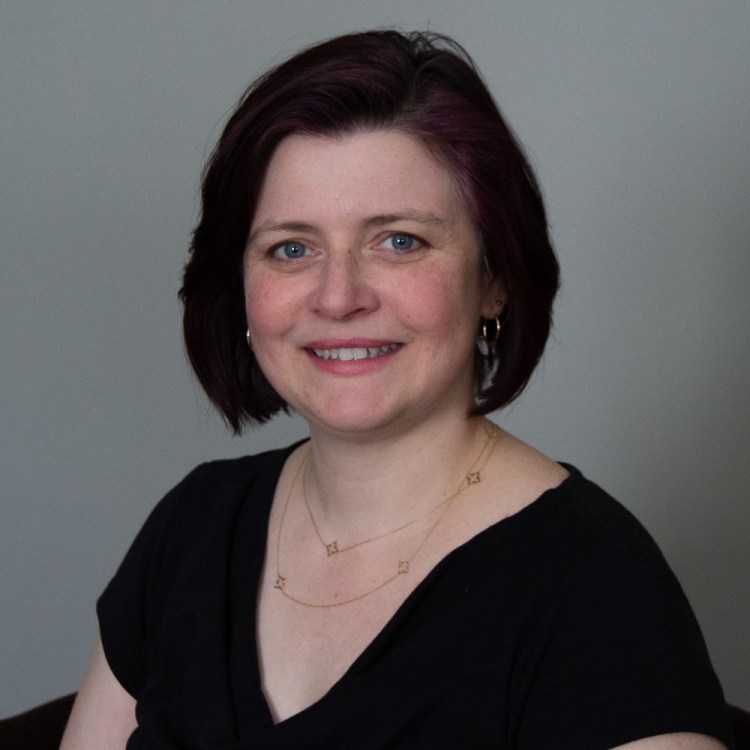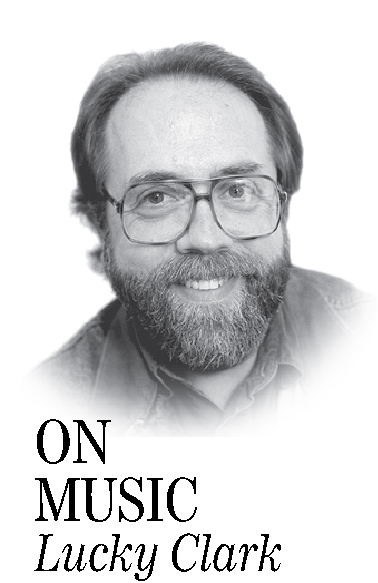I’m a bit behind in coverage of the Concerts at Jewett 2020 series so I decided to lead off February with an interview I recently conducted with UMA Lecturer of Music, Christine Letcher (who also teaches piano, voice and music theory). Letcher will perform a concert Sunday, Feb. 23, at that venue. It was the first conversation I’ve had with this talented young woman and I discovered that, in addition to her chores at the college, she’s also a member of a Renaissance and Baroque ensemble as a soprano vocalist. I reached her at home in Augusta and began by asking her …
Q: One of the write-ups about your upcoming show at Jewett has you performing with a group called PUMA, could you give me a little more information about that band?
Letcher: Well, Bill Moseley, who is a retired UMA professor and played flute, and when he was here he would have an ensemble and he would name them after different animals. So he had a group that play together regularly and he just randomly called them PUMA, so that’s what I’m going with (laughter). They’re a jazz quartet and I have sung with them once before at the library in Augusta last year and it was so fun and enjoyable that I said, “We’ve got to do this again!” So I booked them. I am a classical musician but for thirty years have been obsessed with Ella Fitzgerald and used to be able to sing along to all her CDs.
Q: So interests in both classical and jazz. What will your set list be like?
Letcher: In my first half, it will be all classical but ending with a Bill Evans piece. So I’m going to play starting with Debussy’s “Golliwog’s Cakewalk,” which of course was influenced by ragtime, I’ll also play “Clair De Lune” because everybody loves that one. Then I’ll be singing four songs by Debussy and Sean Fleming will be accompanying me. The next four pieces are all composers that influenced Bill Evans so I’ve got one of Satie’s “Gymnopedies,” then a little piece by Lili Boulanger, and the two big pieces will be the “Juex d’eau” by Ravel and the “Fountain of the Aqua Paola” by Charles Griffes — so that’s two water pieces. Bill (Moseley) will be playing flute on a Ravel piece (“piece en forme de habanera”) with me, and that half will end with a transcription I have of Bill Evans’ “Peace Piece.” I figure at this point we all need a little bit of peace.
Q: Oh, boy, do we ever! But anyway, what will the second half be like?
Letcher: Well, the jazz quartet and I will perform. I haven’t completely nailed down exactly what I’ll sing but just a handful of jazz standards — six or seven jazz standards.
Q: As a singer and a pianist, how long have you been doing this?
Letcher: I actually started at one college and they wanted me to decide between voice and piano and I said, “Hope!” (laughter) so I transferred so that I could do both. Basically, I’ve always done both and I sing with the St. Mary’s Schola down in Falmouth, so there I’m primarily a singer, but I teach both piano and voice and perform both. I don’t think I could choose if I had to.
Q: And this is at UMA.
Letcher: Yes, and this concert is through Senior College, they have a concert series, this will be in Jewett Hall.
Q: How did this concert program come to be?
Letcher: It was put together mostly by pieces that I wanted to play but also, like I said, the second section of the first half was really culminating with Bill Evans’ “Peace Piece” and some people he was influenced by. I love programing music and finding out what music people borrowed from other musicians.
Q: Well, it shows the interconnectivity that happens across the arts and genres.
Letcher: Yeah, and one of the things I knew from a long time ago, from a documentary on Josephine Baker, was that African-Americans were needing to use the back door and weren’t able to stay in hotels in this country, but they could go over to France and be appreciated and treated equally — or at least fairly — over there. Early jazz and blues was being promoted by Ravel and French critics before any one in America was really accepting it as a high art form. The social aspects of music is very much of interest in me. In fact, I’m actually starting a PhD program looking at music and politics, exploring the conditions in which composers were creating their music and all of the factors that influenced them, not just melody and tonality. So when I do this concert I plan to say a little bit about the connections and cultural aspects, I don’t want to drone on and on because people might just say, “Okay, could you just sing now?” But I do plan to add in some commentary in-between pieces.
Q: Well, it’s good to give context, and people, I think, appreciate that. Personally, I think it’s incredibly helpful for a deeper understanding of the music.
Letcher: Yeah, and I think it allows people to appreciate the music and a different level and a deeper context. And I do believe that, as a performer, one of my roles is to give people an hour or two outside of the craziness of our world right now, to sit in quiet and to not be on their phones and not be embroiled in to-do lists.
Q: Speaking of the folks coming to your show there at Jewett, is there anything you’d like to pass on to them?
Letcher: Well, one of the possible outcomes of this concert is to look at two different styles and really equalize them on a level playing field, and to have people appreciate how these musicians in the early 20th Century really did look up to each other and borrow and influence each other. As an earlier student of music, I didn’t realize that that was happening so it’s been an interesting discovery for me, as well.
Lucky Clark has spent over 50 years writing about good music and the people who make it. He can be reached at luckyc@myfairpoint.net if you have any questions, comments or suggestions.
Send questions/comments to the editors.




Success. Please wait for the page to reload. If the page does not reload within 5 seconds, please refresh the page.
Enter your email and password to access comments.
Hi, to comment on stories you must . This profile is in addition to your subscription and website login.
Already have a commenting profile? .
Invalid username/password.
Please check your email to confirm and complete your registration.
Only subscribers are eligible to post comments. Please subscribe or login first for digital access. Here’s why.
Use the form below to reset your password. When you've submitted your account email, we will send an email with a reset code.